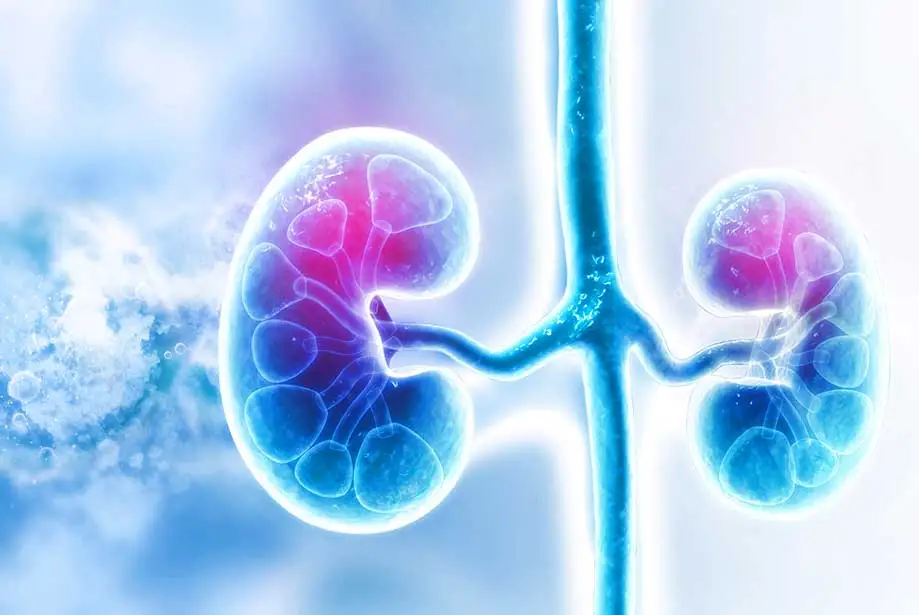About Nephrotic Syndrome:
- It is a kidney disorder that causes your body to pass too much protein in your urine.
- It usually results from a problem with your kidneys’ filters (glomeruli).
- The kidneys remove waste and excess fluid from your blood through filtering units called nephrons.
- Each nephron contains a filter (glomerulus), which removes waste and excess fluids from your blood and send them to your bladder as urine.
- Common waste products include nitrogen waste (urea), muscle waste (creatinine), and acids.
- In healthy kidneys, the glomeruli filter out waste products.
- They allow your blood to retain thecells and proteins your body needs to function regularly.
- Nephrotic syndrome usually happens when the glomeruli are inflamed, allowing too much protein to leak from your blood into your urine.
- Causes:
- It is not a specific kidney disease.
- It can occur in any kidney disease that damages the filtering units in a certain way that allows them to leak protein into the urine.
- Some of the diseases that cause nephrotic syndrome, such as nephritis, affect only the kidney.
- Other diseases that cause nephrotic syndrome, such as diabetes and lupus, affect other parts of the body as well.
- Symptoms: Signs and symptoms of nephrotic syndrome include:
- Severe swelling (edema), particularly around your eyes and in your ankles and feet
- Foamy urine, a result of excess protein in your urine
- High fat and cholesterol levels in the blood. The medical term for it is “hyperlipidemia.”
- Weight gain due to fluid retention
- Fatigue
- Loss of appetite
- Nephrotic syndrome can lead to serious complications, including
- blood clots that can lead to thrombosis
- higher risk of infection caused by the loss of immunoglobulins, proteins in your blood that help fight viruses and bacteria
- high blood pressure, also called hypertension
- brief or long-lasting kidney problems, including chronic kidney disease and kidney failure
Treatment: It includes addressing the underlying cause and taking steps to reduce high blood pressure, high cholesterol, swelling and infection risks. Treatment usually includes medications and changes to your diet.
Q1: What are proteins?
Proteins are large, complex molecules that play many critical roles in the body. They do most of the work in cells and are required for the structure, function, and regulation of the body’s tissues and organs. Proteins are made up of hundreds or thousands of smaller units called amino acids, which are attached to one another in long chains. There are 20 different types of amino acids that can be combined to make a protein. The sequence of amino acids determines each protein’s unique 3-dimensional structure and its specific function. Amino acids are coded by combinations of three DNA building blocks (nucleotides), determined by the sequence of genes.
Source: In search of skin lightening creams, kidneys take a hit
Last updated on February, 2026
→ UPSC Notification 2026 is now out on the official website at upsconline.nic.in.
→ UPSC IFoS Notification 2026 is now out on the official website at upsconline.nic.in.
→ UPSC Calendar 2026 has been released.
→ UPSC Final Result 2025 is expected to be released in the second week of April 2026.
→ Check out the latest UPSC Syllabus 2026 here.
→ Join Vajiram & Ravi’s Interview Guidance Programme for expert help to crack your final UPSC stage.
→ UPSC Mains Result 2025 is now out.
→ UPSC Prelims 2026 will be conducted on 24th May, 2026 & UPSC Mains 2026 will be conducted on 21st August 2026.
→ The UPSC Selection Process is of 3 stages-Prelims, Mains and Interview.
→ Prepare effectively with Vajiram & Ravi’s UPSC Prelims Test Series 2026 featuring full-length mock tests, detailed solutions, and performance analysis.
→ Enroll in Vajiram & Ravi’s UPSC Mains Test Series 2026 for structured answer writing practice, expert evaluation, and exam-oriented feedback.
→ Join Vajiram & Ravi’s Best UPSC Mentorship Program for personalized guidance, strategy planning, and one-to-one support from experienced mentors.
→ Check UPSC Marksheet 2024 Here.
→ UPSC Toppers List 2024 is released now. Shakti Dubey is UPSC AIR 1 2024 Topper.
→ Also check Best UPSC Coaching in India




















